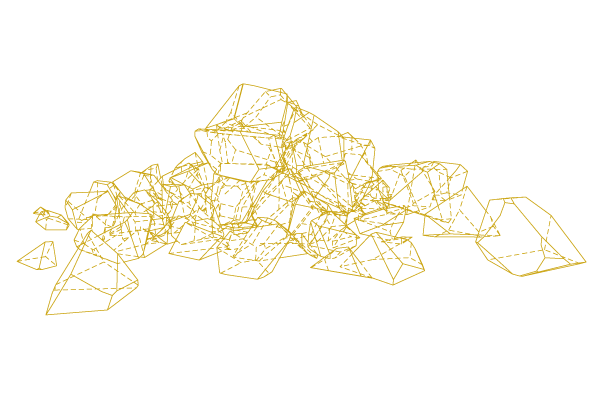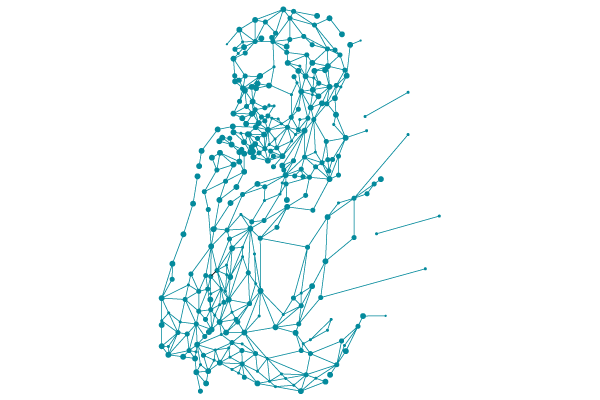

Trick: Add a new, small change to a current routine.
Habit stacking works because it links small changes to existing habits and ingrained routines. It lets us fold some new behavior into the things we're already doing. That makes it easy to keep up the new behavior without feeling the stress of making some big change.1
Example: “Stack” a new habit of donating to a charity or contributing extra to a savings account when you’re paying your monthly bills.
Trick: “See” your future self or the future life you want. Imagine it routinely and in detail.
Visualizations aren't just a passing wish or hope. They're detailed, routine visions of some future we want. As we visualize our future selves, our brains get into the "future self" mindset. We start to unconsciously believe we have the future we want, and we can get much better at creating it.2
Example: Visualize what your life will be like in 12 months if you stick to your most recent resolution. What will that accomplishment fee like? What will it mean for you? Hold onto this picture and revisit it. This can be a powerful reminder of why you chose your resolution and what success could feel like.


Trick: Turn your resolutions into a game with built-in rewards if you “win” or achieve certain milestones.
Games are fun! They make our resolutions more tangible, they let us keep score, and they give us a clear path forward. Plus, games can motivate us with healthy competition and reward us for our "wins." Those rewards give us a dopamine rush that can keep us coming back for more.3 That combination of factors can make gamification a really powerful way to stay on track with our resolutions.4
Example: Download an app that gamifies your goals. If you want to get in better shape, for instance, use a step counter or fitness tracking app.
Trick: Focus on one behavior (a “keystone” habit) that can create a major ripple effect of positive change in your life.
Some habits can inspire bigger changes in our lives because they make us feel better or they improve our productivity. That can create a flywheel effect that primes us to want to make other positive changes and keep those good feelings flowing.5
Example: Getting more sleep and exercising regularly are keystone habits that can trigger other good behaviors, like eating healthy or trying to quit “bad” habits like smoking.


Trick: Break down your resolution into the smallest possible step and start there. Add a small step only after you’ve been successful with a previous small step, continuing until you achieve your goal.
The idea here is to make it as easy as humanly possible to do something. With the minimum viable effort strategy, we eliminate as many barriers a possible by breaking the resolution down into the tiniest increments we can. And we start there.6
Example: Focus on one areas of your finances and, again, start small. It could be as simple as automating certain contributions or checking certain account balances on a more regular basis. Start small to go far.
Trick: Join a group that practices the new behavior or shares the new habit you want to adopt.
Groups - even just one other person - can motivate us and create a sense of accountability. With groups, we can also get healthy competition and the push we need to stay on track with a resolution or new change.
Example: If getting in shape is part of your resolutions, start or join a neighborhood group for walking or bicycle riding. You could also hire a personal trainer as a coach.

1-https://www.inc.com/jeff-haden/a-study-of-800-million-activities-predicts-most-new-years-resolutions-will-be-abandoned-on-january-19-how-you-cancreate-new-habits-that-actually-stick.html
2- https://nationaltoday.com/ditch-new-years-resolution-day/
3- https://www.medium.com/swlh/the-power-of-habit-stacking-68115384ad6e
4- https://www.forbes.com/sites/lidijaglobokar/2020/03/05/the-power-of-visualization-and-how-to-use-it/?sh=256600b96497
5-https://www.verywellmind.com/the-incentive-theory-of-motivation-2795382
6- https://www.bitcatcha.com/blog/gamify-website-increase-engagement/
7-https://www.lifehack.org/846364/keystone-habits
8- https://www.psychologytoday.com/us/blog/the-adaptive-mind/201909/9-steps-create-changes-that-will-last
Investment Advisory Services offered through Trek Financial LLC., an (SEC) Registered Investment Advisor.
Information presented is for educational purposes only. It should not be considered specific investment advice, does not take into consideration your specific situation, and does not intend to make an offer or solicitation for the sale or purchase of any securities or investment strategies. Investments involve risk and are not guaranteed, and past performance is no guarantee of future results. For specific tax advice on any strategy, consult with a qualified tax professional before implementing any strategy discussed herein.
